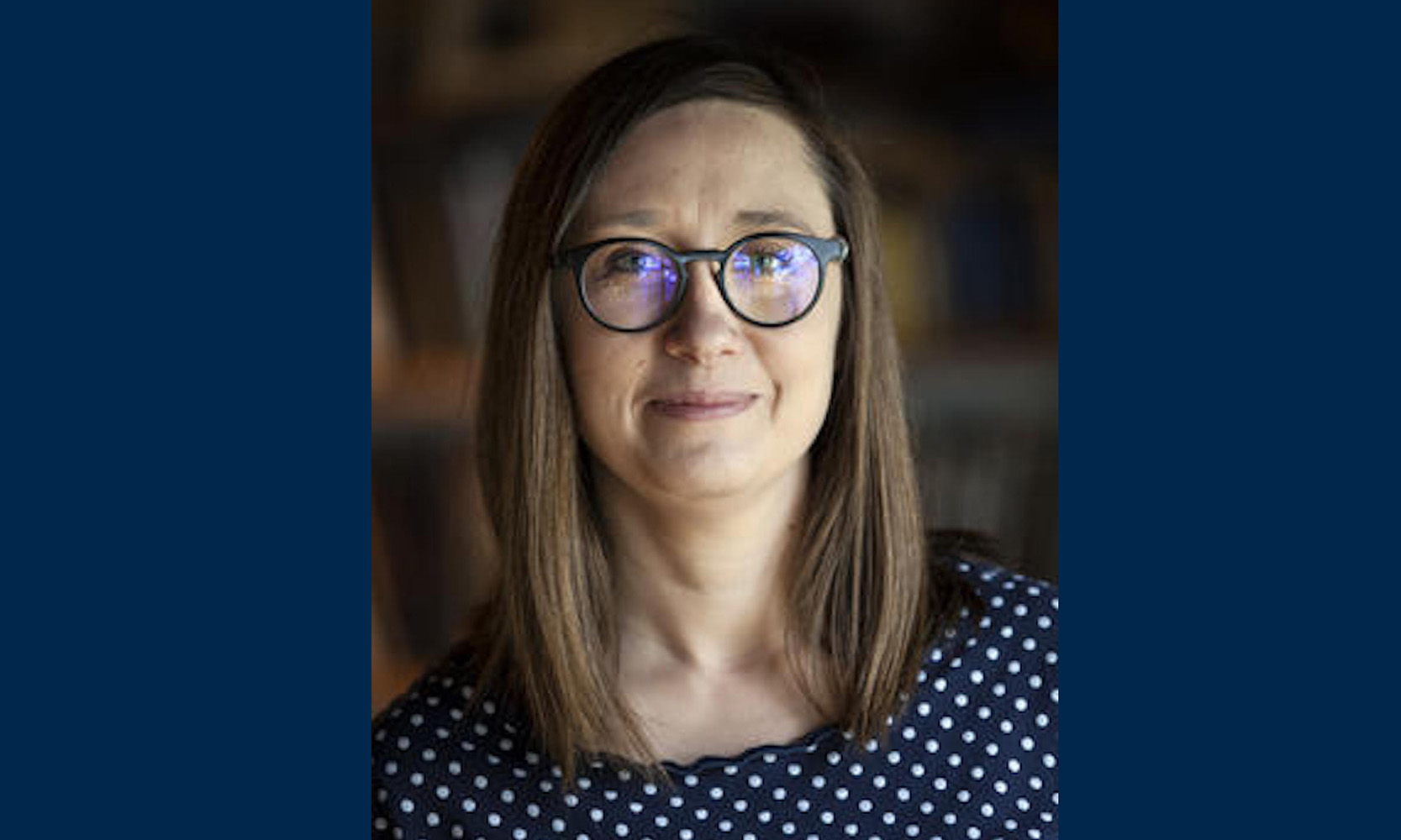Poems were shared and messages were sent by using Morse code on the prison walls. A pregnant woman gave birth without medical help—but with her cellmates attending to her. Women worked together to fashion a curtain from old clothes to gain privacy in an overcrowded space.
Assistant Professor Anna Muller’s 2018 book, If the Walls Could Speak: Inside a Women’s Prison in Communist Poland, shares the personal stories of nearly 50 people—both Communist and anti-Communist—who lived behind bars in Polish prisons post World War II and their family members who were affected. Many of the imprisoned were released after Soviet leader Joseph Stalin’s death in 1953.
“I wanted to share their stories; show how humanity can still exist in the most oppressive of situations,” said Muller, who is the Frank and Mary Padzieski Endowed Professor in Polish/Polish American/Eastern European Studies. “Now many of these people have passed away. But their stories are still here. This book is for them.”
Muller spent years collecting oral histories of former women’s prison inmates, many given long-term or life sentences for political activities against the Communist state. The book shares experiences from their arrests, years in prison and eventual release.
Muller said she didn’t set out to do this research. While working on a Fulbright Scholar Program project in Poland, Muller was introduced to Jadwiga Janiszowska, a woman in her 70s—a woman whom Muller learned had lived in a Communist prison.
“I hadn’t met anyone who had lived in one and I was genuinely curious about her experience. She was hesitant to talk at first. She did want to share her story, but didn’t think she would be understood. In a sense, she was right. I couldn’t understand it like she did; it is her experience. But I wanted to have a connection with her, to learn,” said Muller, who researches human coping strategies in forcefully imposed conditions; she worked for the Museum of the Second World War in Gdansk, Poland, as a curator responsible for the sections on concentration camps, the Holocaust and eugenics prior to her UM-Dearborn appointment.
With continued visits to Janiszowska’s residence, a trust was formed and stories were shared. Janiszowska gave Muller names of other women who served time in Communist prisons. Muller also worked with historians, librarians, academics and more for names of people to interview or access to previously collected interviews.
Listening to their experiences from various Polish prisons during that time, Muller discovered a common theme—that a space of extreme repression became simultaneously a place of extreme creativity.
They spoke to each other through covert communication systems, relied on their heightened senses to warn themselves and each other of approaching guards, and developed their own sense of community.
Muller said she wanted to tell the personal stories on how women dealt with fear, loneliness and harsh conditions, and still worked to create a sense of normal, a sense of freedom under conditions that were the antithesis of that.
“It was crushing, but the human spirit finds a way to create,” Muller said. “Time is frozen. Space is frozen. It’s her and those four walls. Alone with sounds; alone with thoughts. People respond to this in different ways, of course. But through the conversations I’ve had, I’ve learned that even when things are stark, there is still room for creativity, for ingenuity, for identity to grow.”




